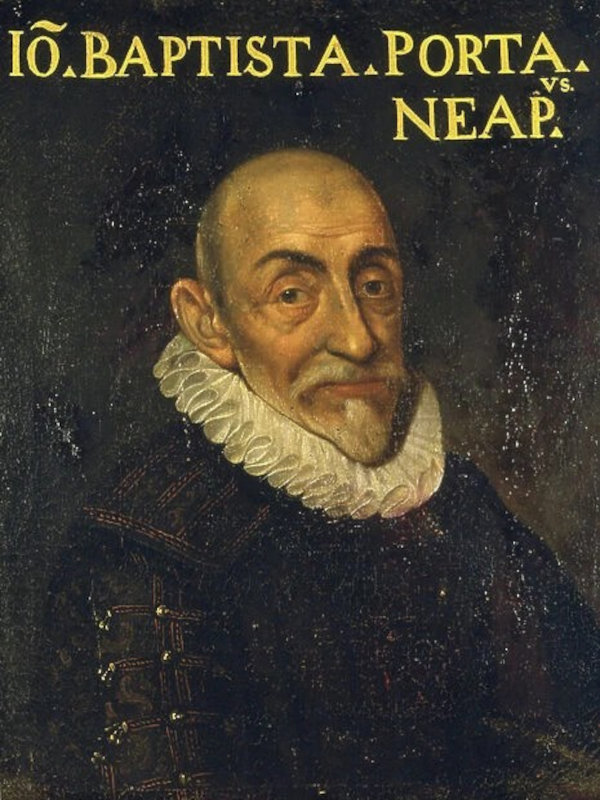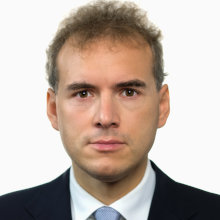SECRETS
The Academia Secretorum Naturae: Magic, secrets and instruments of Experimental Science in the Sixteenth Century Naples
Project
The overarching aim of SECRETS is to provide the first, complete historical-philosophical reconstruction of the Academia secretorum naturae, one of the earliest Societies in Europe, to explore in an innovative way the “secrets of nature”.
The Academia secretorum naturae was founded in Naples in 1560 by Giambattista Della Porta (1535-1615), one of the leading figures of the Italian Renaissance in natural philosophy.
The Academy was the crossroads of an erudite but also applied knowledge, where scientists and philosophers interacted with artisans, breaking the boundaries between high and low culture, and overcoming gender barriers. In the Academy, the encounter between the theoretical-scientific tradition of geometric optics, natural magic, and the experimental approach of an empirical Aristotelianism that valued mechanics and the practical arts led to numerous inventions, destined to change the physiognomy of applied sciences of the early modern era.
A study on the experimentalism promoted in Naples by the Academia secretorum naturae, which is at the core of the project, will significantly influence our understanding of the Italian Renaissance and its contribution to the so-called Scientific Revolution/rise of experimentalism.
Objectives
The project has two specific objectives:
- to increase our knowledge of the members of the Academia secretorum naturae and of the philosophical framework within which its scientific research took place;
- to carry out the first organic reconstruction of the processes and outcomes of its technology, including the scientific instrumentation it was equipped with.
The success of the project will greatly affect the overall interpretation of the historical phenomena related to the development of experimental sciences in Europe at the dawn of the modern period, redesigning pre-established geographies and highlighting for the first time the role of Renaissance Naples as a cultural center promoting scientific innovation at European level.
In this perspective, the project investigates the contribution of new protagonists, texts, and contexts so far never subject to investigation, relating them for the first time to the activities of the Academia secretorum naturae and placing them in the wider European scenario.
Thus, the project does not simply expand our knowledge about the Academy and fills in gaps along traditional lines, but it uses an interdisciplinary approach across and within disciplines, creating new knowledge, and reassesses received categories.
Research
The image we have of science differs radically depending on whether we observe it “in action”, in its making, or when it is “ready for use”, without knowing its history or content. Scientists tend to present their work as a linear path of discovery of nature; observing them in the laboratory, however, one finds them grappling with the numerous translation steps necessary to transform an experimental event into a piece of cumulative knowledge. Hence the historian’s need to study science by being interested both in the ideas from which scientists started, and in sometimes overlooked details such as: the background of the participants, the nature and origin of the instrumentation.
By placing itself at the intersection of the history of philosophy and the history of science and technology, the project intends to look at all these aspects of the science produced in the Accademia secretorum naturae, using a multidisciplinary approach both in terms of methodologies and results. Indeed, the methods envisaged are manifold, envisaging a result that will embrace a wide spectrum of disciplines and interests: from the history of philosophy to the history of science and technology, from the history of mathematics and the history of music to the social and cultural history, up to gender studies.
Two kinds of outcomes will be considered:
- those forthcomings from science considered as a ‘body of ideas’;
- those that have to do with ‘technology’, such as products and processes.
Activities
- September 29th, 2025, International Conference at Ca’ Foscari University of Venice
- February 24th, 2025, Invite Speaker, Renaissance Philosophy Online (RPO), Seminar: "A Paradise Inhabited by Magicians. Natural Philosophy and Practical Arts in Naples at the Time of Giambattista Della Porta (1535-1615)"
- January 25th, 2025, Invite Speaker, Lecture at The Paideia Institute for Humanistic Study (New York, US): "Aristoteles Magus: Philology and Secrets Sciences in Renaissance Naples"
- January 9th, 2025, Invite Speaker, Seminar at Ca’ Foscari University of Venice, (organizer Maria Vittoria Comacchi): "A Napoli dall'Oriente: Menzogna, Segreto e Sortilegio dalla ‘Magia Naturale’ a ‘Lo Astrologo’ di G. B. Della Porta"
- December 4th, 2024, Invite Speaker, Lecture at The University of Salento, Lecce: “La ‘Magia naturalis’ di Giovan Battista Della Porta e il problema della scienza nel Rinascimento” (organizer Luana Rizzo)
- November 29th, 2024: Invite Speaker, Seminar at the Istitut de Recherche et d’Histoire des Textes, CNRS (Orleans, France): "Working togheter to do wonders: The Academia Secretorum Naturae"
- November 28th, 2024: Invite speaker, "Pratiques divinatoires et corps humain (Orient-Occident)", Journée d'étude organisée par Jean-Charles Coulon (IRHT-CNRS) et Julien Véronèse (POLEN): "Astrology and Celestial Physiognomy: Giambattista Della Porta and the artificial divination of the future"
Team
Donato Verardi
Principal Investigator
Marco Sgarbi
Supervisor








